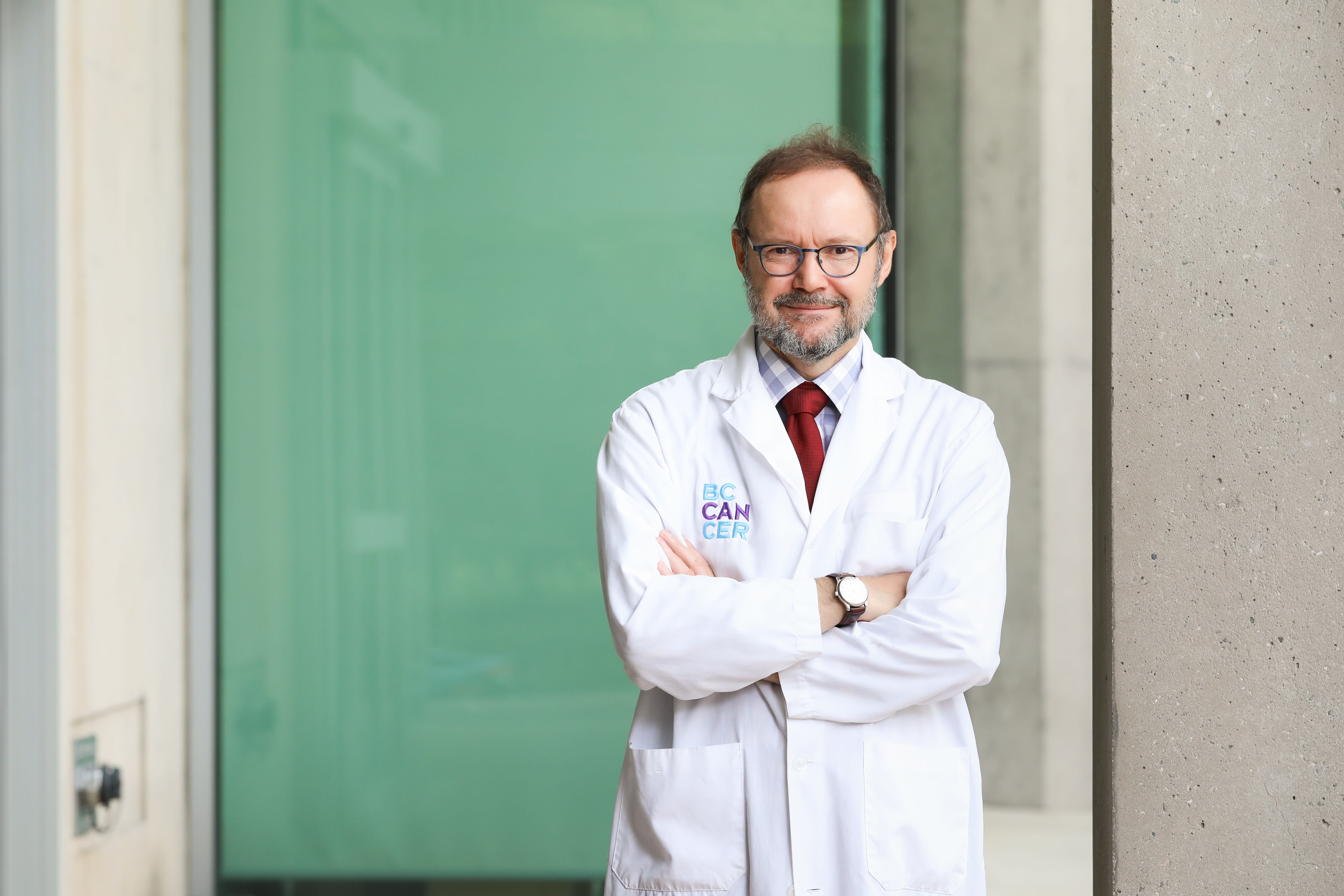Studying the Genetic Factors of Lymphoid Cancer in Families
October 17, 2014
Found in BC Cancer Research Centre, Genomics, Lymphoid cancers
Hello again. This week I’ll tell you what it’s like to be a Principal Investigator at the BC Cancer Agency Research Centre.
I have a research lab at the Genome Sciences Centre (GSC), which is one of the research departments at the BC Cancer Agency. There are over 60 senior research scientists at the research centre, and nine of us are at the GSC. The GSC specializes in research on genomes and genes. We are an unusual department because we have two parts: a world class genome sequencing ‘factory’ and a collection of research labs, each led by a Principal Investigator. My work is focused on discovering why some people develop cancer and others do not. It is important to understand why and how cancers develop, so that we are better able to prevent and treat them.
I spend my time writing grants, devising experiments, supervising and mentoring graduate students, reading scientific literature and helping my students write papers. I am also a Professor at SFU, where I teach genetics and other topics. As I mentioned last week, the best part of being a Principal Investigator is being able to decide what questions are important, and decide how to ask them by designing experiments. My research can also be considered clinical, because we work with samples and information from cancer patients.
A major research focus in my lab now is the Lymphoid Cancer Families Study, a project that Dr. Joe Connors and I lead together. Lymphoid cancers are blood cancers, and while each subtype, from Hodgkin lymphoma to chronic lymphocytic leukemia, are very different from each other, they are sometimes found in the same family, and it is thought that there are genetic factors that predispose to them. Over the last seven years we’ve identified 130 lymphoid cancer families interested in participating in research and collected DNA samples from them. The largest family has seven members with lymphoid cancer.
We use ‘next-generation’ sequencing methods to sequence all the genes of family members and find rare sequence differences (variants) in their genomes. Then, we look at which rare variants are shared by all affected members of a family. Finally, we analyze for patterns in the variants found by comparing across many families.
We expect this strategy to reveal genetic variants that contribute to the risk of lymphoid cancers. Once such variants are found, they will be useful for better risk prediction in family members. We hope that understanding which genes are involved in lymphoid cancers will also provide clues to how to prevent and treat them.
We welcome anyone with two or more people with lymphoid cancer in their family to participate in the Lymphoid Cancer Families Study. Participation involves a phone interview and providing either a blood sample or a saliva sample for DNA. Participation usually takes only a couple of hours. Please call 604-675-8172 or email Ruth Thomas (rthomas@bcgsc.ca) if you would like to be part of the study. Many thanks to our current study participants, for your time and encouragement!
In addition to investigating cancer risk, my lab also studies ‘Super-Seniors’ who remain cancer free (and free of other major diseases) at ages up to 109. I’ll tell you about these unusual people and what they have helped us learn about cancer, in a future blog.
Bye for now,
Angie


